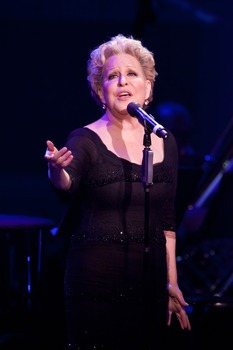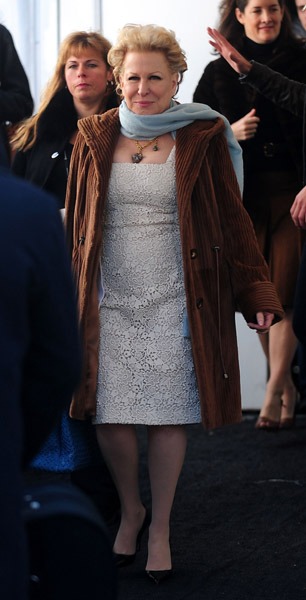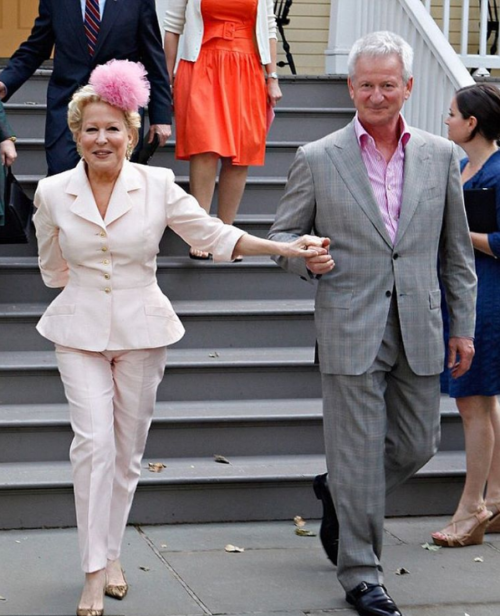The Huffington Report
Stars on Stars: Carnegie Hall’s 120th Anniversary Gala Concert
Posted: 04/15/11
On April 12, Carnegie Hall presented the first of several events to mark its 120th Anniversary. The benefit concert, led by James Taylor and featuring Dianne Reeves, Bette Midler, Sting, Steve Martin, and Barbara Cook, honored Carnegie Hall’s folk, jazz, Broadway, and pop legacy.
Carnegie Hall’s commitment to showcasing icons of popular music is less well-known than its preeminence as a classical music hall. An informal poll of my friends — very roughly, 28 year-olds, — elicited varying reactions to the venerable institution, including, “I think of 10-year-olds playing piano,” “great acoustics,” “you’ve made it as a performer,” “velvet and quiet prestige,” and “a different era in New York when men knew how to dress.” All agreed that Carnegie Hall only accepted the best.
Tuesday night’s concert both paid tribute to this distinction and contributed to it. James Taylor — soft-spoken and charming — narrated the evening’s procession through Carnegie Hall’s popular music history. The concert doubled as the first of a four-part series on James Taylor meant to “celebrate the songs that made him an American icon.”
Taylor opened by describing Carnegie Hall’s early role as a public forum, when it provided a stage for the show-and-tell of Arctic explorers and the debates of politicians as well as the world’s most revered musicians. His accompanying song, “Frozen Man,” underscored the passing of that time, a relic of a certain human communication. The evening’s performances unfolded chronologically. Bette Midler captured the vaudeville drama of the 1920s with her robust and winning delivery of “My Yiddish Momme,” a rumination on the eternal Jewish mother.
The seemingly ageless Midler embodied the rare combination of equal parts compelling character actress and excellent singer. Then came Steve Martin, the ultimate Renaissance man performer. Martin’s banjo playing (including a rendition of Flatt & Scruggs’s “Foggy Mountain Breakdown” and a few of his own songs), interspersed with the expected zingers, was exciting to see, as well as hear. The banjo is funny because it produces a sound that seems like it should come from a much stranger looking instrument. To call the banjo Martin’s prop would diminish his obvious skill, but Martin’s comedic persona lent the act a unique gravitas; even though he looked like he was faking it, he was really playing and playing well.
Returning to Taylor, the adept star and host of the show. His songs — quiet, rich, pleasant, fondly recalled — shrunk the grand Isaac Stern Auditorium and infused the crowd with the energy of nostalgic recognition. At the same time, Taylor exuded an endearing humility. In fact, all the performers, rightful sovereigns of their respective genres, seemed to service the songs they rendered and celebrated. Even Sting, all raspy and rugged, seemed owned by the Beatles’ “Penny Lane.”
But how could he be otherwise? For he was not only resurrecting a famous melody but also the song’s associated memories and contexts. I expected my attendance would serve to lower the average audience member age. But it was refreshing to think about how differently I approached and remembered the same songs. Taylor’s music epitomized a certain time about which I had only heard stories and saw movies. “I can’t remember what I played in 1971,” said Taylor to sympathetic laughter, “In fact, the 70s were a kind of a blur for me.” Behind him were projected images of the flower power age, such as Pete Seeger’s banjo (inscribed “this banjo surrounds hate and forces it to surrender”).
I knew the words to most of the songs but I didn’t know what it was like to first hear them, while apparently the people sitting on either side of me did. Perhaps most surprising was considering popular music not as mass-produced ephemera but possessing a unique longevity through remembrance and reinvention. Was this particular to music of the 60s, which was special in its relationship to attendant and particular social changes (“turn on, tune in, drop out”)? I don’t think my generation has its ‘James Taylor.’ Today, dropping out seems uninspired rather than progressive.
Finally, and fittingly, former President and quintessential Boomer, Bill Clinton, walked onto the stage, explaining that he came “to represent every musician who wanted to play Carnegie Hall but wasn’t good enough,” before thanking the audience for contributing to the music education programs of Carnegie Hall’s Weill Music Institute.
As a finale, members of the Young People’s Chorus of New York City paraded down the aisles to join all the performers in singing Taylor’s “Shower The People,” a song at least twice as old as any one of them.







